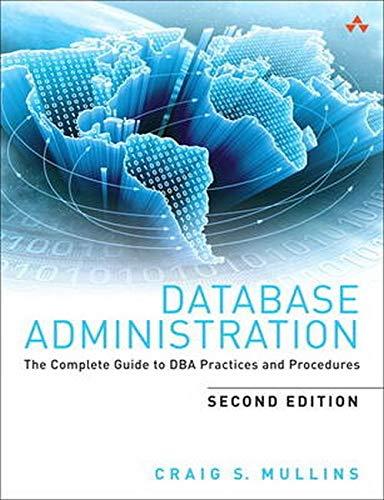Question
Problem Thread A must wait for a thread on another processor to change a flag bit in memory. The scheduler can either allow A to
Problem
Thread A must wait for a thread on another processor to change a flag bit in memory. The scheduler can either allow A to spin, repeatedly retesting the flag, or it can deschedule A, allowing some other thread to run. Suppose it takes a total of 10 milliseconds for the operating system to switch a processor from one thread to another. If the operating system deschedules thread A and immediately reschedules it, then it wastes 20 milliseconds. If, instead, A starts spinning at time t0, and the flag changes at t1, then the operating system will have wasted t1 t0 time doing unproductive work.
A prescient scheduler is one that can predict the future. If it foresees that the flag will change in less than 20 milliseconds, it makes sense to have A spin, wasting less than 20 milliseconds, because descheduling and rescheduling A wastes 20 milliseconds. If, on the other hand, it takes more than 20 milliseconds for the flag to change, it makes sense to replace A with another thread, wasting no more than 20 milliseconds.
Your assignment is to implement a scheduler that never wastes more than twice the time a prescient scheduler would have wasted under the same circumstances.
Step by Step Solution
There are 3 Steps involved in it
Step: 1

Get Instant Access to Expert-Tailored Solutions
See step-by-step solutions with expert insights and AI powered tools for academic success
Step: 2

Step: 3

Ace Your Homework with AI
Get the answers you need in no time with our AI-driven, step-by-step assistance
Get Started


